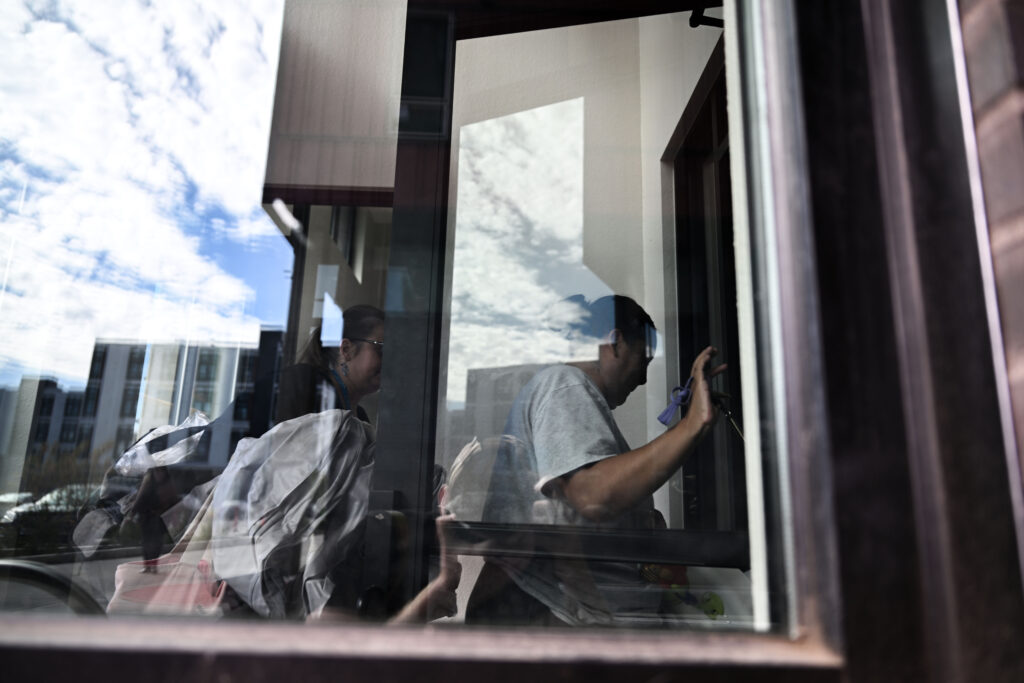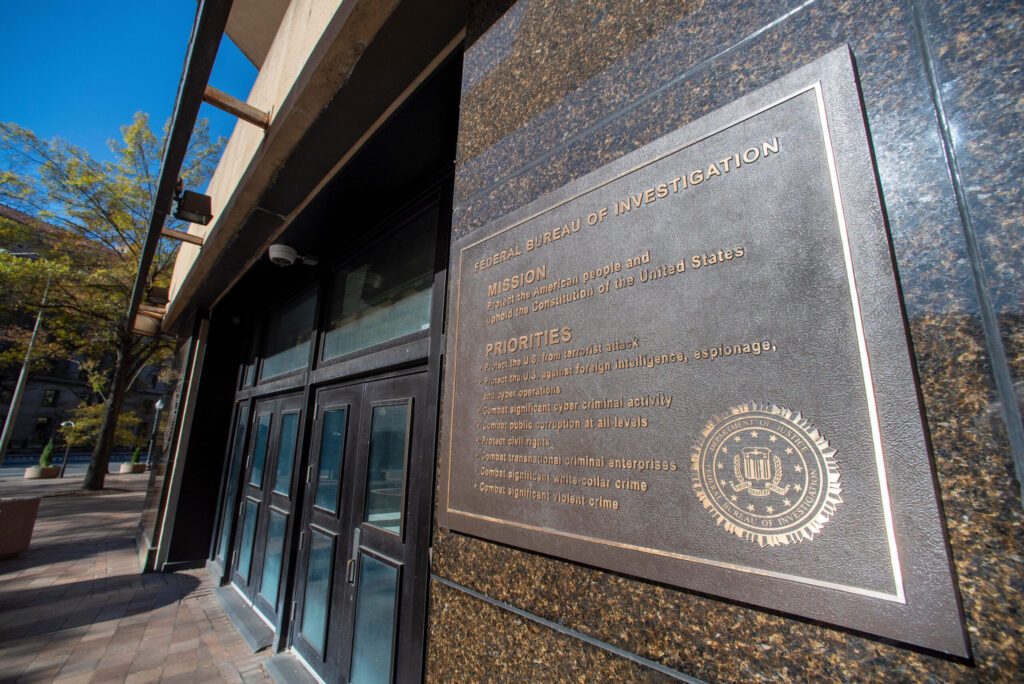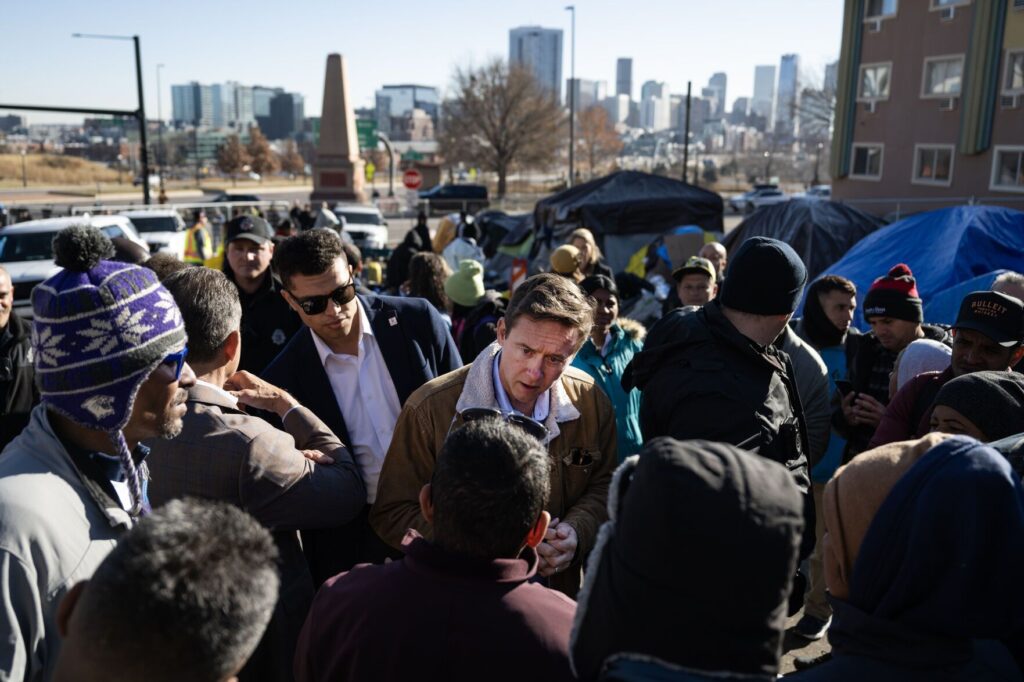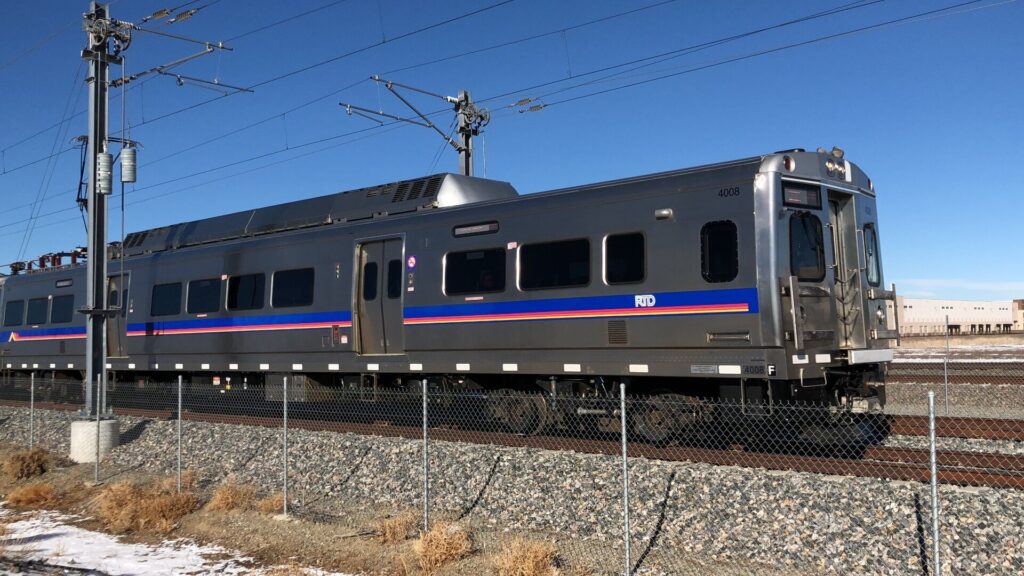Trump’s border czar to Denver mayor: ‘He’s willing to go to jail, I’m willing to put him in jail’
After a firestorm of criticism over his vow to defy a mass deportation effort by the incoming Trump administration, Denver Mayor Mike Johnston said Tuesday he is mulling over “options” to protect the immigrants unlawfully staying in America.
His office did not answer further questions, such as what “options” the mayor has in mind.
The criticism came from allies of President-elect Donald Trump who support his campaign promise — which he reiterated while at a campaign rally in Aurora — to conduct the largest mass deportation in American history.
In an interview with Denver Gazette news partner 9News, Johnston said he would protest himself to resist Trump’s deportation plans and that he is “not afraid” of jail time, though he added he is also “not seeking it.”
The former president’s son, Donald Trump Jr., replied on X: “Your terms are acceptable.”
In that 9News interview, Johnston sought to situate his position with that of former Colorado Gov. Ralph Carr, who is historically notable for his criticism of the Roosevelt administration’s detention of Japanese Americans during World War II. Southeastern Colorado was the site of an internment camp.
“If the president and any of his actors are going to do anything that we think are illegal or immoral or un-American, we’ll stand up against them,” Johnston said.
In an October campaign stop in Colorado, former president Donald Trump pledged to conduct mass deportations in a project called “Operation Aurora.” Trump also promised to start those deportations in the Colorado City.
“We are a country under tremendous distress,” Trump said. “We will send elite squads from ICE to deport every single gang member.”
Aurora has been in the crosshairs of the national debate on immigration since CBZ Management — which owns three apartment complexes in the city — blamed deteriorating living conditions on the Venezuelan prison gang, Tren de Aragua (TdA).
Local officials — including Johnston — have downplayed the gang’s presence in metro Denver.
Johnston has said he supports deporting immigrants who have committed violent crimes, but insists immigrants unlawfully staying in the U.S. who haven’t committed crimes should not be swept up.
Johnston also drew parallels to Tiananmen Square in an interview with Denverite, suggesting residents would rise up, alongside Denver police, to resist a mass deportation campaign.
“More than us having DPD stationed at the county line to keep them out, you would have 50,000 Denverites there,” Johnston said.
Tiananmen Square was the focal point of the 1989 pro-democracy protests and ensuing massacre when the Chinese military forcibly cleared the area using tanks and armed soldiers. Because of government censorship, no one knows with certainty how many were killed, but estimates range from several hundred to thousands.
‘A form of insurrection’
Johnston has since attempted to walk his statements back.
In a statement to The Denver Gazette Tuesday, Johnston repeated comments he made online.
“In Denver we respect the law and enforce it without fear or favor across every inch of our city,” Johnston said. “If Donald Trump tries to break the law and abuse his power, he will get no help from us.”
“Denver is proud to be a welcoming city, and we will do everything in our power to protect those who live here.”
Johnston also said the city is mulling several options “to strengthen protections for all our residents,” in addition to educating the immigrant community about their rights.
The criticism directed at Johnston came swiftly.
In an interview on Fox News that aired Sunday, Trump’s “border czar” pick, Tom Homan, said the administration can withhold federal funding from those who fail to cooperate.
“All he has to do is look at Arizona v. U.S., and he would see he’s breaking the law,” Homan said. “But, look, me and the Denver mayor, we agree on one thing: He’s willing to go to jail, I’m willing to put him in jail.”
Elon Musk also weighed in, writing on X: “Those who break the law will be arrested and that includes mayors.”
Critics have argued Trump’s mass deportation plan would be costly, while supporters maintain it’s feasible and necessary.
U.S. Sen. Rand Paul, R-Kentucky, argued on “Face the Nation” Sunday that Johnston could face prosecution and removal from office for attempting to block any mass deportations under the incoming administration.
“What he is offering is a form of insurrection,” Paul said.
Paul added: “I think the mayor of Denver is on the wrong side of history.”
Denver has been at the center of an influx of immigration for the past two years, starting when a busload of immigrants were dropped off downtown to wander in the cold.
Roughly 43,000 immigrants — who illegally crossed the southern border — have arrived in Denver since December 2022. About half have stayed — the equivalent of adding roughly 21,500 people, or a city the size of Golden, in less than two years.
The vast majority are from South and Central America, particularly Venezuela.
Early in the humanitarian crisis, officials decided city taxpayers would assume the cost of temporarily housing and feeding these new arrivals. These costs have exceeded $75 million.
At the peak of the border crisis, Johnston embraced the role of de facto spokesperson for interior cities like Denver that were once protected by distance from the southern border but were now grappling with thousands of new immigrant arrivals.
While Johnston did not address the flow of immigrants into Denver, he sought strategies to ease the burden on his city.
‘Ground zero’
The wave of arriving immigrants last winter threatened to upend the city’s budget, with the mayor calling for budget cuts.
Overwhelmed by the numbers coming to Denver, Johnston went on a PR blitz with the mayors of Chicago and New York City to call for a national immigration strategy.
All hard hit with influxes, these mayors, including Johnston, blasted Texas Gov. Greg Abbott for what they called a “reckless and unsafe” political strategy of transporting droves of immigrants to their communities, threatening local economies.
“Denver finds itself right now at ground zero in trying to resolve and respond to the migrant crisis,” Johnston had said in December. “We have had at this point more migrant arrivals to our city than any city in America, per capita.”
“And that is not because there is a thoughtful or coordinated strategy to entry. It is because we are the first big city north of El Paso,” he said.
Johnston’s criticism of Abbott came as Denver had its own busing program to transport immigrants out of Colorado to the locations of their choice.
Officials had speculated immigrants were drawn to Denver because of its relative proximity to the Mexico border, while others blamed the appeal for its “sanctuary city” status. Broadly speaking, a sanctuary city refers to local policies that prohibit cooperating with federal immigration authorities.
Texas officials in El Paso, though, believe the city’s offer of shelter and onward travel — while well intended —made Denver a magnet for immigrants.
“There’s a pull factor created by this, and the policies in Denver for paying for onward destinations,” Irene Gutiérrez, executive director of El Paso County Community Services, has said.
Although city leaders denied that housing and travel drew immigrants to Denver, Johnston did eventually end the practice.











